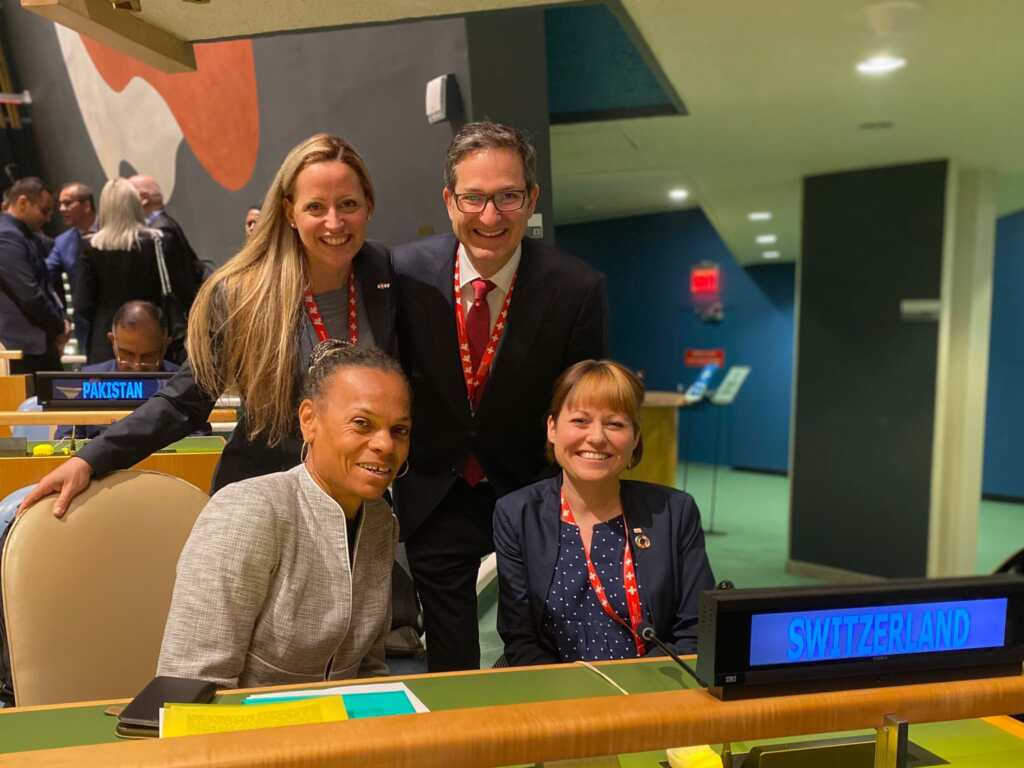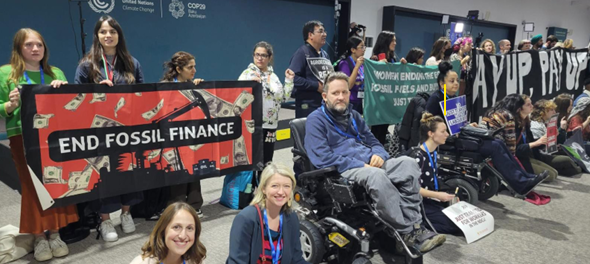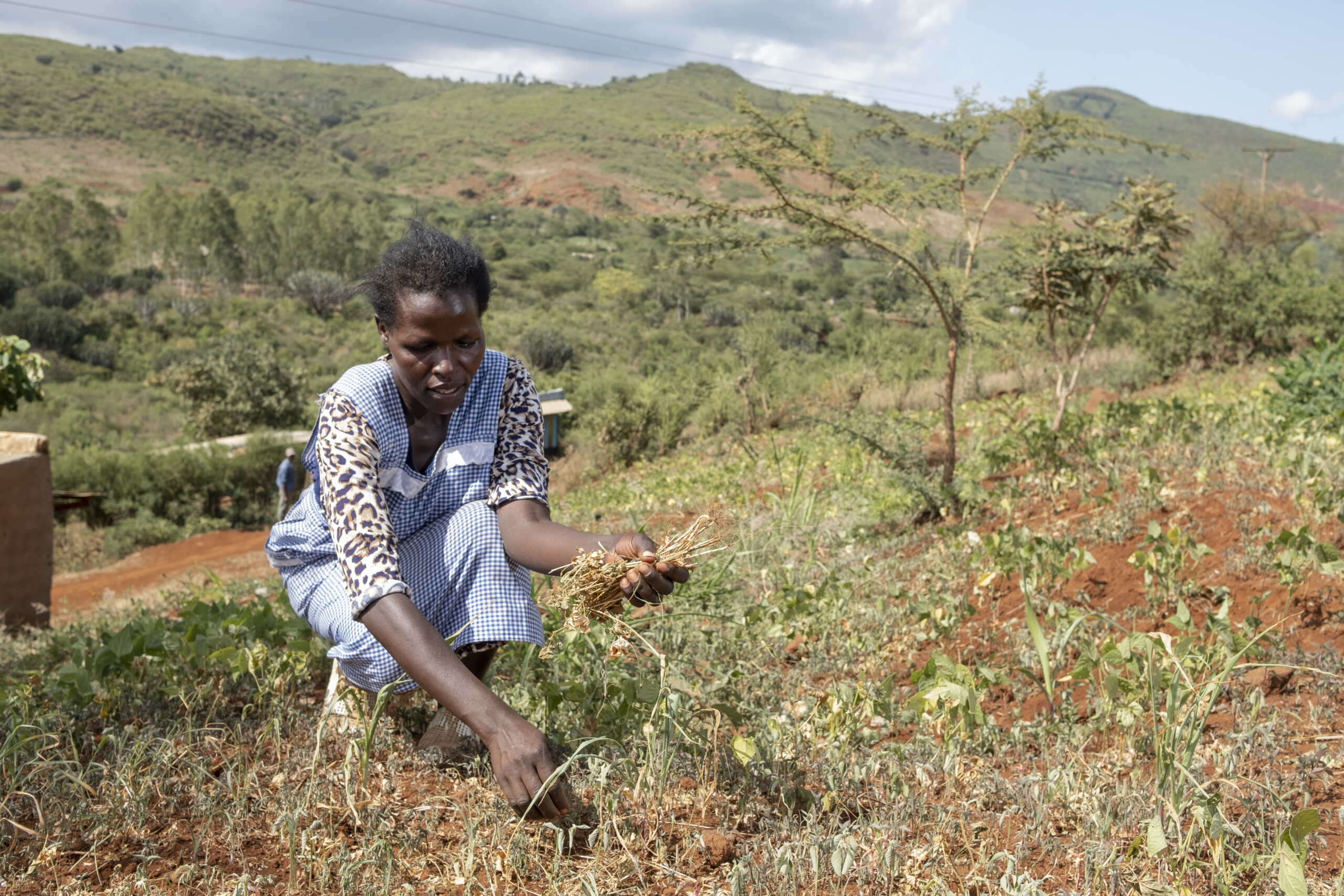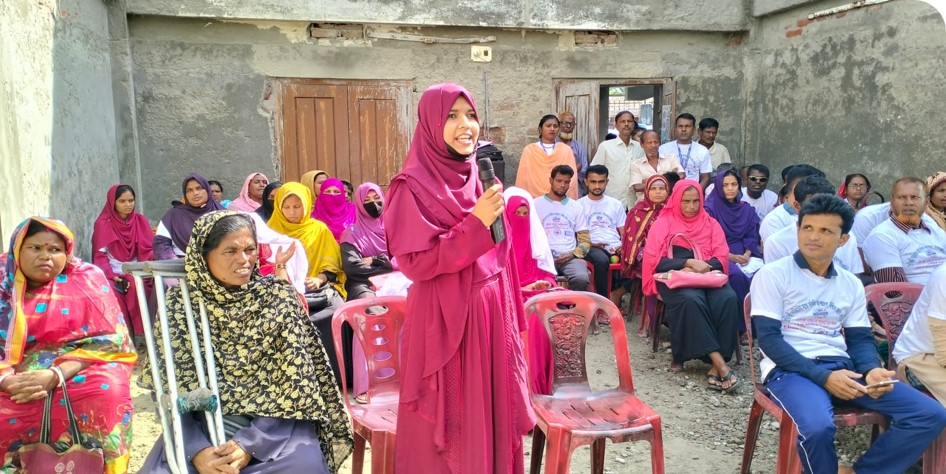Working together to reduce risk for a resilient future
Our takeaways from the High-Level Meeting of the Midterm Review of the Sendai Framework
The Sendai Framework for Disaster Risk Reduction 2015-2030 was the first post-2015 framework to be adopted by the international community. It is now at its mid-term. To foster implementation of the Sendai Framework for the remaining seven years up to 2030, UNDRR convened a high-level meeting at the United Nations Headquarters in New York on 18th and 19th May 2023. CBM has been participating in the meeting as civil society representative of the Swiss NGO DRR Platform in the official Swiss delegation.

Persons with disabilities and Sendai Framework: Where are we?
In preparation of the meeting, UNDRR published a report on the midterm review of the Sendai Framework and findings are alarming: Despite some progress, the Midterm Review shows that reporting countries are not on track to realize the Sendai Framework by 20301. Even worse, while efforts towards disability-inclusive disaster risk reduction have been reported, the establishment and implementation of inclusive disaster risk reduction systems is still limited, and persons with disabilities are still among the groups that are most often excluded from early warning and post disaster recovery. Hence, they continue to be among those most impacted by disasters2.
The report also highlights that least developed countries, landlocked countries and small island developing states countries are disproportionately affected by disasters and their consequences, facing enormous challenges in achieving the goals of the Sendai Framework. Persons with disabilities are estimated to make up about 16% of the world’s population or over 1.3 billion people3 with 80% of persons with disabilities living in the Global South4. The situation is exacerbated for persons with diverse, intersecting identities experiencing intersectional discrimination resulting from the existing social inequalities and power relations.
The Political Declaration and the way forward
On 18 May 2023 the General Assembly adopted by consensus a political declaration to strengthen implementation of the Sendai Framework. CBM Switzerland, member of CBM Global, along with representative organizations of persons with disabilities has been advocating for the inclusion of persons with disabilities within the declaration to make sure they are no longer left behind but meaningfully consulted and included in all disaster risk reduction efforts for the years to come.
The political declaration recognizes that there are huge gaps in terms of data, including data on persons with disabilities, representing barriers for inclusive and multisectoral disaster risk reduction policies and strategies. In fact, what isn’t counted, doesn’t count. The declaration calls for enhancing the collection and interpretation of data disaggregated by income, sex, age and disability. This is an important reiteration of the data commitment under the Sendai Framework and needs urgent implementation.
Further, the declaration calls on states for the full, equal, meaningful and inclusive participation of persons with disabilities in all processes and strategies related to disaster risk reduction. Persons with disabilities are the experts in all matters affecting them and only by actively consulting them, we can ensure that DRR measures are indeed inclusive. This has already been firmly established by the Sendai Framework in line the Convention on the Rights of Persons with Disabilities.
The declaration also calls for strengthened resource allocation to disaster risk reduction including for early and anticipatory approaches. This is key as prevention is more effective and economically efficient and can lead to reduced disaster loss and damages. Importantly, all public and private DRR investments need to be in line with the Convention on the Rights of Persons with Disabilities, applying the twin-track approach to the inclusion of persons with disabilities.
We highly welcome the Political declaration and call for its rapid and full implementation by the international community and all stakeholders.
We will continue to advocate for states to track their spending on disability-inclusive disaster risk reduction through application of the OECD Development Assistance Committee (DAC) Disability and DRR markers.
Only by adopting a broader, more people-centered, including the most at-risk groups such as persons with disabilities, and a more preventive approach to disaster risk reduction, can the sustainable development goals be truly realized.
1 UNGA, 2023. Main findings and recommendations of the midterm review of the implementation of the Sendai Framework for Disaster Risk Reduction 2015-2030. Available at: https://sendaiframework-mtr.undrr.org/publication/main-findings-and-recommendations-midterm-review-implementation-sendai-framework (last accessed: 20 February 2023).
2 IASC Guidelines on Inclusion of Persons with Disabilities in Humanitarian Action (2019)
3 WHO, 2023. Fact Sheet on Disability and Health.
4 WHO, 2022. Global Report on Health Equity for Persons with Disabilities. Available at: https://www.who.int/publications/i/item/9789240063600 (last accessed: 17 March 2023)
https://cbm-global.org/news/working-together-to-reduce-risk-for-a-resilient-future-midterm-review-sendai-framework
Related News

One in Five Is Not Enough: The gains on Disability Inclusion have not gone far enough
One in Five Is Not Enough: The gains on...

COP30 Is a Turning Point for Disability-Inclusive Climate Action
As the world gathers in Belém, Brazil, from 10–21 November 2025 for COP30, the message from...

Achieving resilience for all requires funding disability inclusion in DRR
On International Day for Disaster Risk Reduction (DRR) 2025,...
